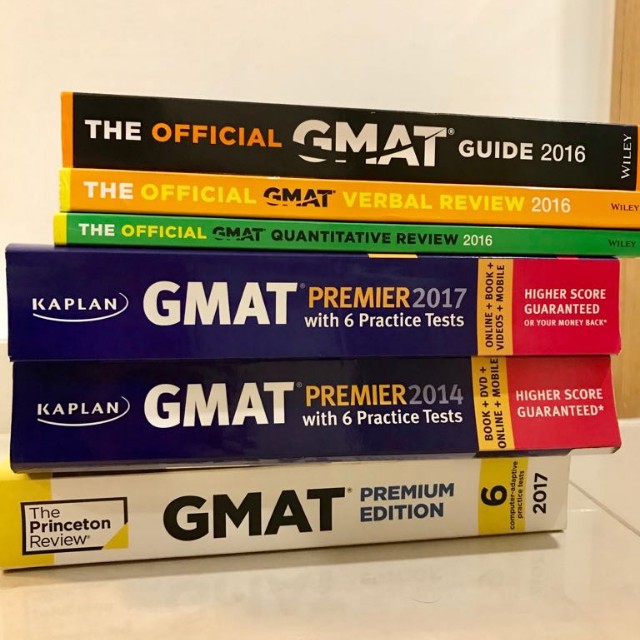GMAT Guide
By Mansi Jain (CBS batch of 2021)
The dream of getting into a reputed B-School starts to take shape with GMAT and CAT preparations. These exams require consistent efforts on a well worked out strategy to achieve the targeted score.
The CBS Post presents to you a detailed strategy building guide to ace GMAT, as an experience of Mansi (CBS Batch of 2021), who managed to secure 760 in her GMAT attempt.
Upon entering the second year, it was almost a norm at CBS (at least for the batch of 2021) to enroll in TIME and prepare for the CAT, which I did diligently do until my fourth semester. However, one day I chanced upon a session by ISB-YLP in one of the seminar rooms, where they talked about the deferred enrolment program as well as the GMAT. This intrigued me and so I started speaking to a couple of people, and researching about the school, the exam, and more so, about the decision to pursue my MBA right after college.
I realized that while I am interested in consulting, I’m not sure if it’s the right fit for me, and in case it is not, an MBA will then help me pivot to a job role of my liking. More so, people shared that you’re able to relate to B-School course content better if you have some work-experience beforehand. Of course, this is my reasoning, and a couple of people do pursue their MBAs right after their undergrad if they wish to break into roles that generally do not hire right out of undergrad like PE/VC, brand strategy roles at an FMCG, or if they want to simply get done with their studies in one go, and all of which are extremely valid reasonings. Another very important factor is that you’re in the test-taking mode while in undergrad, which ultimately allows you to perform better at standardized tests, and so most people who wish to stay in India hope to get done with CAT for good in their final year.
The next decision at hand was “CAT or GMAT?”. Some of the reasons why I am pro-GMAT are:
- The 5-year validity: Taking the GMAT right now allows you to, of course, apply to deferred enrolment programs while in your final and pre-final years of college, but also, focus merely on your B-School applications later on. Also, if your application does get rejected, you can reapply to your dream schools with the same score next year.
- The scope of usage: GMAT not only allows you to apply to MBA programs, but also to a gamut of specialized master’s programs abroad, and thus, really opens up different options for you.
- Ease of retaking: If you do end up screwing up your first attempt, you can retake the test as soon as 2 weeks from your previous attempt.
- Preparation Time: A diligent effort of 3-4 months is sufficient to get you your dream score.
- Concept Standardization: GMAT questions follow a set pattern, and so it is highly unlikely for you to find yourself completely off-guard on the day of the test.
Tips based on my Study plan:
I started my preparation in mid-April and took the GMAT in mid-August where I scored a 760.
I started by taking a GMATprep mock where I scored a 640. It was important because it helped me identify my personal strengths and weaknesses.
A lot of people ask me how many hours it took me to prepare. Honestly, it really varies from person – to – person. For instance, I’ve always been strong in Quantitative Aptitude (Quants) and Reading Comprehension (RC), so I could save time there but had to put more effort towards improving my Sentence Correction (SC) and Critical Reasoning (CR) skills. So, the first test allows you to identify the areas that require your most immediate attention. Generally, 3-4 months is a good enough time span to prepare.
A study plan based on my experience of enrolling with a GMAT-prep company is as follows:
Stage 1: Learning and Cementing the concepts
Step 1: Start with Sentence Correction Concepts.
Step 2: Once you’re done with SC,
Day 1: Take 3 medium level quizzes and do a strategic review of those quizzes.
(Strategic review: Understand why every single option choice is wrong. You can utilise GMATClub here to read expert solutions) (10 questions in every quiz)
Day 2: 1 Medium and 3 Hard level quizzes + Strategic Review
Day 3: Revise all the previous quizzes
Your goal should be to get 90%+ accuracy in medium level quizzes, and 70% in hard level quizzes.
Step 3: Take a mock and analyse if you’ve been able to perform better in the Sentence Correction section now.
Step 4: Repeat steps 1 and 2 for CR and then take mixed quizzes with both SC and CR (8 Questions each, time limit 32 minutes and include both medium and hard questions)
Note: maintain accuracy as previously stated. Moreover, take time out for revisiting SC notes and questions.
Take a mock again to analyse your performance in SC and CR. Take 1 day and strategically analyse each question.
Step 5: Repeat all the previous steps for RC, however, include RC too in the mixed quizzes (8 questions each and time limit 48 mins).
Take a mock again to analyse your performance in SC, CR and RC. Take 1 day and strategically analyse each question.
Step 6: Carry out the same steps for all quant concepts too.
STAGE 2: REVISING AND APPLYING THE CONCEPTS
This is the stage wherein your Official Guide and GMATClub will be of most use to you. Start taking timed quizzes of OG, and using GMATClub to practice advance level questions.
Moreover, 1 mock every week should be good to keep you in the groove.
https://gmatclub.com/forum/advanced-gmat-directory-with-difficulty-analysis-307043.html
STAGE 3: MOCK MODE
Take 2-3 mocks per week. Here, analysis and revision are key. Go through every mistake, and try to make notes for last minute revision.
At this stage, you should start preparing for Analytical Writing Assessment (AWA) and Integrated Reasoning (IR) too.
This is the best resource for AWA Preparation:
https://gmatclub.com/forum/how-to-get-6-0-awa-my-guide-64327.html
For IR, you can revise the questions you did as part of your mocks, there are some resources available on the youtube/GMATClub too. However, don’t stress too much about these two sections. They are comparatively easier to score well in. Needless to say, the difficulty level shouldn’t deter you from preparing since these do matter in school admissions.
THINGS TO DO ALONGSIDE YOUR PREP:
- Make a GMATClub Account. They have multiple sessions wherein they offer their paid services for free, try to get those freebies.
- Follow the following people on GMATClub: For Quant: Bunuel and chetan2u
For Verbal: GMATNinja , GMATNinjaTwo , daagh, VeritasPrepKarishma , mikemcgarry and sayantanc2k. (You will receive an email every night that’ll contain all the questions they have answered. Try attempting those, especially during stage 2 of your preparation)
- In stage 2, I used to take 1 hour quant quizzes on the GMATClub page. It is one of the best resources from where you can solidify all your quant concepts.
- https://www.youtube.com/results?search_query=gmatninja. They have good videos. Therefore, in case you’re stuck somewhere and need more clarity in any concept, this is a good page to find content on.
I think the most underrated advice is that of having a GMAT MINDSET. It is extremely important that you’re in touch with the GMAT material every single day, even if it’s for only half an hour via a quiz. Start reading more content (debriefs/prep strategies/expert reviews) on GMATClub, watching more youtube videos and exploring different ways to genuinely learn the concepts better.
My TIMING Strategy:
Quant (15 mins for every 8 questions)
| Time Stamp On the Screen | Question Number you should be on |
| 46 mins | Q9 |
| 30 mins | Q17 |
| 14 mins | Q25 |
| 2 mins | Q31 |
Verbal (16 mins for every 9 questions)
| Time Stamp On the Screen | Question Number you should be on |
| 49 mins | Q10 |
| 33 mins | Q19 |
| 17 mins | Q28 |
| 1 min | Q35 |
ERROR LOG
Some people like to prepare an excel to keep track of their mistakes. However, personally, I made PPTs wherein I simply pasted the question on one slide and then a screenshot of the expert solution on the next, and went through them regularly.
LAST MINUTE TIPS (received from E-GMAT)
- Don’t: Change the sectional sequence on test day. For instance, if you’ve been practising mocks with the V-Q-IR-AWA sequence, please stick to that. Minimize surprises.
- Don’t: Fall in love with the options. The aim is not to find the one right answer, it’s to find four wrong ones. Elimination is the name of the game.
- Don’t: Spend more than 3 mins on a problem. Don’t tell yourself you’re “just one step away.” If it’s taking you more than 3 mins then you’re off on the wrong track and not just one step away.
- Do: Carry an energy bar/banana to the exam centre. You’ll need the energy to maintain sharpness.
- Do: Get a full night’s rest. You absolutely do not want to be jittery or exhausted on the test.
- Do: Rely on intuition when running out of time. Intuition builds from knowledge and experience; so if you’re ever in a bind, trust your gut!
At last, you can go through this official article on mba.com:
https://www.mba.com/exams/gmat/plan-for-exam-day/gmat-test-day-checklist
FAQs
- Should I enrol myself with a test-prep centre? If so, which one?
Honestly, most of these companies use the same underlying material, therefore choose as per your preferences (live classes vs self-paced, price point, mentor availability etc). What really makes the difference is your determination and hard work.
If you do not want to invest in a paid course, you can download and use Manhattan/Kaplan books, but you will also have to be pro-active on forums like GMATClub to be able to practice concept-specific questions.
- Should I begin with the Official Guide (OG)?
It is one of the most common mistakes that folks make. GMAT OG questions are GMAT-retired questions, which means they’re extremely valuable and limited. You should first aim to solidify all your concepts and only then should you begin with the OG
- Can I manage CAT and GMAT together?
Honestly, it really depends on how much time you’re willing to give to your prep. CAT quant does help with GMAT quant, but the verbal section is completely different for both exceptions being RC and a very minute portion of CR. Also, consider placement prep when you’re charting out a schedule for yourself.
- When do I schedule my GMAT exam?
Most folks tend to schedule it around the time they start getting their target score in the mocks. However, for someone like me, a deadline was really important to amp up my preparation. Therefore, I chose a date a month in advance which gave me a target to realign my study hours accordingly.
In the end, please understand this is a very personal, and high-level view of GMAT. Please begin your preparation by doing thorough research on the exam, and keeping yourself active on different forums. Moreover, it really helps to have a study group that can keep you accountable.
Also, there is a luck factor involved in your final GMAT score, and I do believe that it played a huge role in my score as well. So do your best in terms of preparation, and do not hesitate to reach out should you have any follow up questions.
Best of luck!
You can find GMAT Resources in the link attached below:




Comments